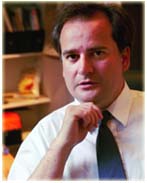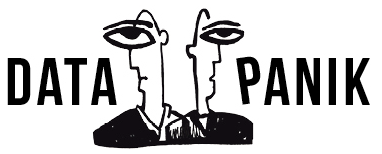Caspar Bowden, onafhankelijk privacy-expert en voormalig privacy-verantwoordelijke bij Microsoft, schreef voor het Europees Parlement een briefing note (pdf) over de toestanden rond de NSA, Prism en FISA. Het rapport is bedoeld om aan de leden van het LIBE-comité context en achtergronden te bieden bij de surveillance toestanden en vooral de impact ervan op de fundamentele rechten – zoals het recht op privacy en gegevensbescherming – van Europese burgers. Hieronder een uitgebreid citaat uit het rapport. Caspar Bowden is op vrijdag 27 september keynote speaker van de Freedom Not Fear in Brussel en zal daar zijn rapport uitgebreid voorstellen.
Proponents of an open society insist that, against the previous trend, technologies ought not to drive human actions; they have to be used in reasonable ways and under the Rule of Law. The mass scaling has to be contained. Constitutional provisions have to be applied, and the presumption of innocence is applicable for all human beings (not only citizens). If suspicions exist, they have to be related to certain forms of crime, and not marginal behaviours or life styles. Hence, what is at stake here is not the mechanisms by which antiterrorism laws and activities have to be regulated at the transatlantic level, even if it is a subset of the question. It is even not the question of espionage activities between different governments. It is the question of the nature, the scale, and the depth of surveillance that can be tolerated in and between democracies.
 [Edward] Snowden’s revelations highlight numerous breaches of fundamental rights. This affects in priority all the persons whose data have been extracted via surveillance of communications, digital cables or cloud computing technologies, as soon as they are under a category of suspicion, or of some interest for foreign intelligence purposes. However, all these persons are not protected in the same way, especially if they are not US citizens. The EU citizen is therefore particularly fragile in this configuration connecting US intelligence services, private companies that provide services at the global level and the ownership they can exercise over their data. It is clear that if EU citizens do not have the same level of protections as the US citizens, because of the practices of the US intelligence services and the lack of effective protections, they will become the first victims of these systems. Freedom of thought, opinion, expression and of the press are cardinal values that have to be preserved.
[Edward] Snowden’s revelations highlight numerous breaches of fundamental rights. This affects in priority all the persons whose data have been extracted via surveillance of communications, digital cables or cloud computing technologies, as soon as they are under a category of suspicion, or of some interest for foreign intelligence purposes. However, all these persons are not protected in the same way, especially if they are not US citizens. The EU citizen is therefore particularly fragile in this configuration connecting US intelligence services, private companies that provide services at the global level and the ownership they can exercise over their data. It is clear that if EU citizens do not have the same level of protections as the US citizens, because of the practices of the US intelligence services and the lack of effective protections, they will become the first victims of these systems. Freedom of thought, opinion, expression and of the press are cardinal values that have to be preserved.
Any citizen of the EU has the right to have a private life, i.e, a life which is not fully under the surveillance of any state apparatus. The investigative eyes of any government have to be strongly reminded of distinctions between private and public activities, between what is a crime and what is simply a different lifestyle. By gathering massive data on life-styles in order to elaborate patterns and profiles concerning political attitudes and economic choices, PRISM seems to have allowed an unprecedented scale and depth in intelligence gathering, which goes beyond counterterrorism and beyond espionage activities carried out by liberal regimes in the past. This may lead towards an illegal form of Total Information Awareness where data of millions of people are subject to collection and manipulation by the NSA.
This note wants to assess this question of the craft of intelligence and its necessary limits in democracy and between them. As we will see, through the documents delivered by Snowden, the scale of the PRISM programme is global; its depth reaches the digital data of large groups of populations and breaches the fundamental rights of large groups of populations, especially EU citizens. The EU institutions have therefore the right and duty to examine this emergence of cyber mass-surveillance and how it affects the fundamental rights of the EU citizen abroad and at home.
Lees hier het volledige rapport.
Meer over Freedom Not Fear.
Het programma van de FNF 2013.


